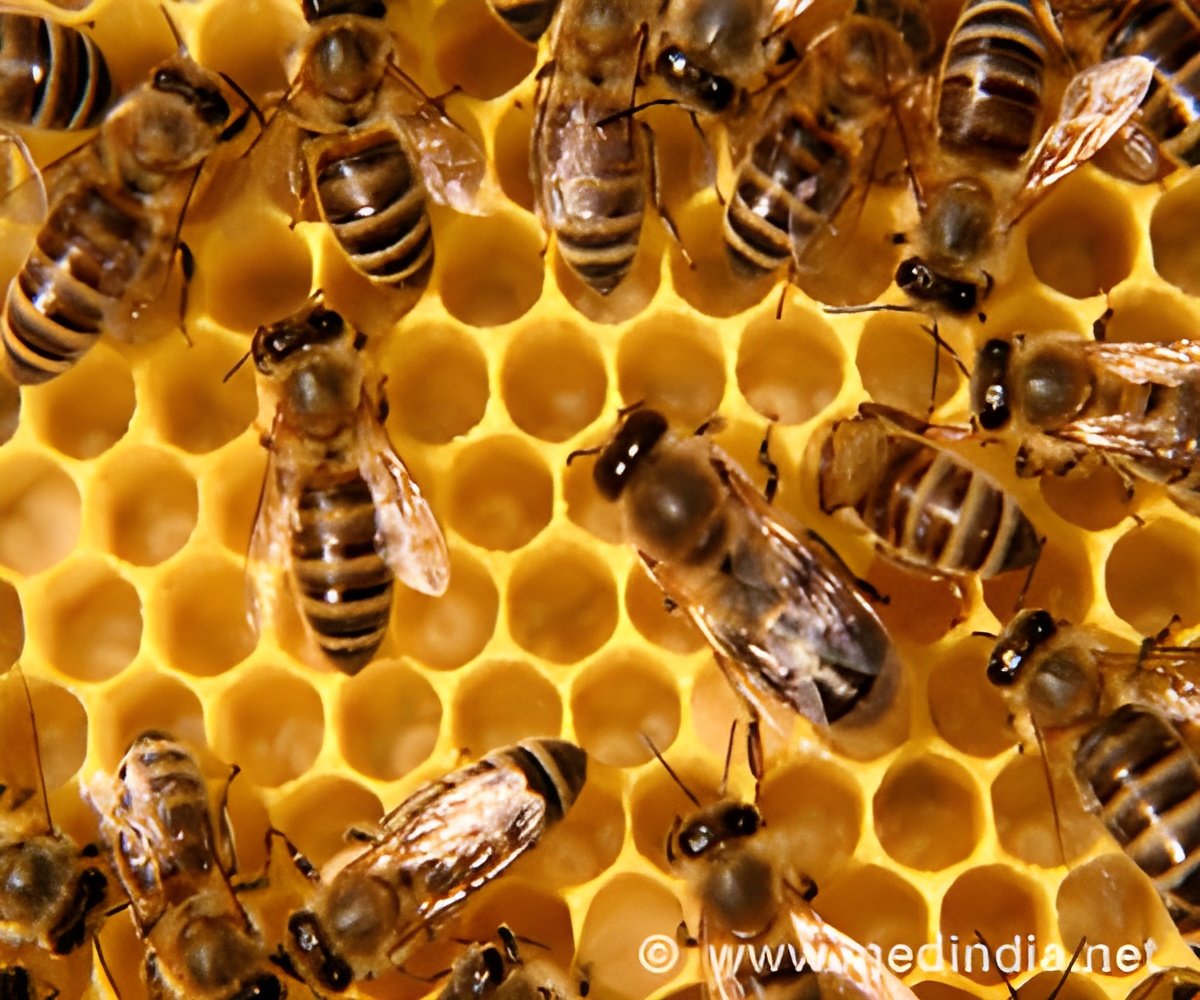A honey bee blood protein called vitellogenin plays a critical, but previously unknown role in providing bee babies protection against specific diseases.

"The process by which bees transfer immunity to their babies was a big mystery until now. What we found is that it's as simple as eating," said study co-author Gro Amdam, professor at the Arizona State University in the US.
"Our amazing discovery was made possible because of 15 years of basic research on vitellogenin," Amdam said. Here is how it works.
In a honey bee colony, the queen rarely leaves the nest, so worker bees must bring food to her. Forager bees can pick up pathogens in the environment while gathering pollen and nectar.
Back in the hive, worker bees use this same pollen to create "royal jelly" -- a food made just for the queen that incidentally contains bacteria from the outside environment. After eating these bacteria, the pathogens are digested in the gut and transferred to the body cavity; there they are stored in the queen's 'fat body' -- an organ similar to a liver.
Pieces of the bacteria are then bound to vitellogenin -- a protein -- and carried via blood to the developing eggs. Because of this, bee babies are 'vaccinated' and their immune systems better prepared to fight diseases found in their environment once they are born.
Advertisement
The new findings could open the door to creating the first edible and natural vaccine for insects, said the paper appeared in the journal PLOS Pathogens.
Advertisement













